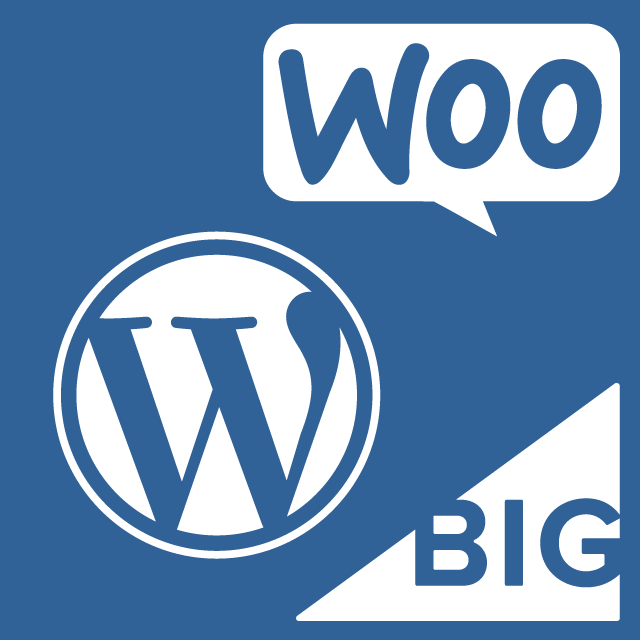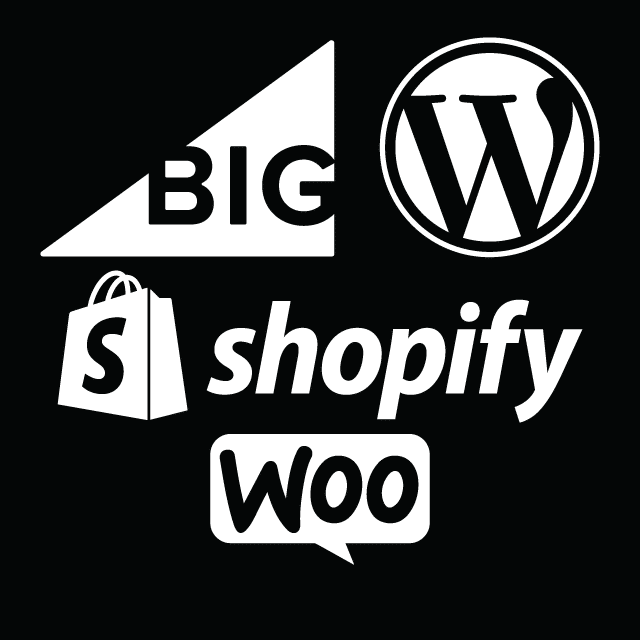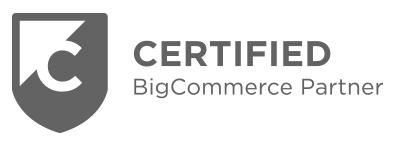
The Ultimate Guide to Choosing the Best eCommerce Website Developer in Adelaide
If you’re looking for an ecommerce website developer in Adelaide who can bring your online store vision to life? Look no further! In this ultimate guide, we will walk you through the process of choosing the best e commerce website developer for your business.
Having a well-designed and user-friendly e commerce website is essential for the success of your online business. It not only attracts customers but also ensures a seamless shopping experience, leading to higher conversions and sales. But with so many options available, how do you find the perfect developer for your unique requirements? That’s where this guide comes in.
We will discuss the key factors to consider when selecting an ecommerce website developer, including experience, expertise, portfolio, pricing, and customer reviews.
Whether you’re just starting out or looking to revamp your existing online store, this guide will provide you with the insights and knowledge you need to make an informed decision. So, let’s dive in and find the best ecommerce website developer to take your online business to new heights!
The Importance of Choosing the Right eCommerce Website Developer
Selecting the right ecommerce website developer is crucial for the success of your online business. A well-designed and functional website can significantly impact user experience, conversion rates, and overall business growth.
Understanding Your Ecommerce Website Developer Needs
Before you start searching for developers, define your requirements. Consider factors like the type of products you’ll sell, your target audience, and any unique features you need. Clarity on your needs will guide your ecommerce website developer selection.
Factors to Consider When Choosing an Ecommerce Website Developer
- Expertise and Experience: Look for ecommerce website developers with a proven track record of an ecommerce website developer. Check their portfolio and assess their ability to handle your specific requirements.
- Platform Compatibility: Choose a developer familiar with the platform you intend to use (e.g., Shopify, WooCommerce, or BigCommerce).
- Budget: Consider your budget and find an ecommerce website developerwhose rates align with your financial plan.
- Communication Skills: Effective communication is essential. Ensure the developer understands your vision and can collaborate effectively.
- Technical Skills: Evaluate their coding skills, knowledge of SEO, and ability to optimize for mobile devices.
- Scalability: Your website should grow with your business. Ensure the ecommerce website developer can handle future enhancements.
Researching and Shortlisting Potential Ecommerce Website Developers
- Referrals: Ask for recommendations from colleagues or industry peers.
- Check Reviews: Read client testimonials and reviews to gauge satisfaction levels.
Evaluating Portfolios and Previous Work
Examine their previous projects. Look for clean designs, user-friendly interfaces, and successful ecommerce website developer implementations.
Assessing Technical Expertise and Skills
Ask about their coding languages (e.g., HTML, CSS, JavaScript), SEO knowledge, and experience with payment gateways.
Considering Cost and Budget
Balance quality with affordability. Remember that investing in a skilled ecommerce website developer pays off in the long run.
Checking Client Testimonials and Reviews
Learn from others’ experiences. Positive reviews indicate reliability and professionalism.
Communicating and Collaborating
Regular communication ensures alignment. Discuss timelines, milestones, and expectations.
Conclusion: Making the Final Decision
Choose an ecommerce website developer who aligns with your vision, has the right skills, and fits your budget. With thorough research and thoughtful consideration, you’ll find the perfect partner for your e-commerce journey.
Please consider us here at A7Designs to help with your e commerce website. We have a lot of experience with shopping carts and website design and can help you with your project! Contact us

Top E-commerce Platforms for Adelaide Businesses
Looking to take your Adelaide business online? Choosing the right e-commerce platform is crucial for success. Here’s a breakdown of some popular options, considering their suitability for Adelaide businesses:
1. Shopify:
- Pros: User-friendly interface, extensive app store, strong scalability, reliable uptime.
- Cons: Relatively higher transaction fees, limited built-in customisation options.
- For Adelaide Businesses: A good option for businesses with a focus on ease of use and scalability. Consider the impact of transaction fees on profit margins.
2. WooCommerce (WordPress):
- Pros: Open-source and highly customisable, wide range of plugins for added functionality, cost-effective.
- Cons: Requires some technical knowledge to set up and manage, can be more complex for beginners.
- For Adelaide Businesses: An ideal choice for businesses with some technical expertise or those wanting a highly customisable store. Consider the need for ongoing maintenance and potential development costs.
3. BigCommerce:
- Pros: Scalable and secure platform, built-in SEO features, strong product management tools.
- Cons: Steeper learning curve compared to Shopify.
- For Adelaide Businesses: Suitable for larger businesses with a complex product catalog and a focus on search engine optimisation (SEO). Evaluate pricing plans compared to projected sales volume.
4. Wix E-commerce:
- Pros: Drag-and-drop website builder, user-friendly interface, affordable pricing plans.
- Cons: Limited customisation options compared to other platforms, may not be ideal for large product catalogs.
- For Adelaide Businesses: A good option for startups or small businesses with simple product offerings and a focus on affordability. Consider scalability limitations for future growth.
Factors to Consider When Choosing a Platform for Your Adelaide Business:
- Budget: Compare pricing plans and transaction fees of each platform.
- Technical Expertise: Consider your comfort level with managing an e-commerce platform.
- Product Catalog Size and Complexity: Choose a platform that can handle your current and future product needs.
- Payment Gateways: Ensure the platform integrates with popular Australian payment gateways like Afterpay and Zip Pay.
- Scalability: Choose a platform that can grow with your business.
- Local Support: Consider the availability of local support resources for troubleshooting assistance.
Here at Adelaide Website Design, we are a team of experienced e-commerce developers who can help you choose the right platform, design and build your online store, and implement effective marketing strategies to attract customers in Adelaide.
Contact Adelaide Website Design today for a free consultation to discuss your e-commerce needs and explore the best platform for your Adelaide business.

The cost of ecommerce website design in Adelaide can vary depending on factors such as:
- Website complexity: Simple stores may cost less than complex ones.
- Designer’s experience and expertise: Experienced designers may charge higher rates.
- Platform choice: Different platforms have varying costs and fees.
- Custom development: Custom features and functionalities can increase costs.
Understanding E-commerce Website Design Costs for Your Adelaide Business
Investing in a high-performing e-commerce website is crucial for your Adelaide business. However, understanding the cost factors involved is essential. While a definitive price cannot be provided without project specifics, here’s a breakdown of key factors influencing e-commerce website design costs in Adelaide:
Project Scope and Complexity:
- Simple vs. Complex Stores: A basic online store with a limited product catalog will be less expensive compared to a complex store with extensive functionalities (e.g., advanced product filtering), custom features, and integrations with third-party platforms.
- Customization Needs: The level of design customization required (unique storefront design, custom features) will affect the overall cost.
Additional Services and Ongoing Support:
- Content Creation: If you require assistance with product descriptions, photography, or other content creation for your online store, this may incur additional costs.
- Ongoing Maintenance and Support: Some web design packages include ongoing maintenance and support services, while others may be charged separately.
Benefits of Working with a Local E-commerce Website Design Team in Adelaide:
- Cost-Effectiveness and Transparent Communication: Adelaide web design agencies can offer competitive rates compared to national averages. Working with a local team allows for clear communication and avoids potential project management overhead, streamlining the design process and potentially reducing costs.
- Understanding the Adelaide Market: Local designers possess a strong understanding of the Adelaide market and customer preferences, allowing them to tailor your online store to resonate with your target audience, potentially leading to higher conversion rates and website ROI.
Contact Adelaide Website Design today for a free consultation to discuss your e-commerce vision and explore how our Adelaide-based team can help you build a successful online store at a competitive price.
A well-designed ecommerce website can significantly boost your online sales and brand visibility. It provides a platform to reach a wider audience, 24/7 accessibility, and a seamless shopping experience for your customers.
Why is E-commerce Website Design Important for My Adelaide Business?
Having a well-designed e-commerce website is essential for any Adelaide business looking to thrive. Here’s how an online store can help you reach new heights:
Increased Sales Reach:
- Expand Your Customer Base: An e-commerce website allows you to sell your products to customers across Adelaide and beyond, removing geographical limitations and opening doors to new markets.
- 24/7 Availability: Your online store is always open, allowing customers to browse and purchase products at their convenience, even outside regular business hours.
- Compete with National and International Brands: An e-commerce platform puts you on a level playing field with larger competitors, allowing you to compete for customers across Australia and potentially internationally.
Enhanced Brand Awareness and Customer Engagement:
- Strengthen Your Brand Image: A professional e-commerce website portrays your business as a trusted and reliable online retailer, solidifying your brand image in Adelaide.
- Improved Customer Engagement: Interactive features like product reviews, ratings, and live chat options can foster customer engagement and build stronger relationships with your Adelaide audience.
- Targeted Marketing Opportunities: An e-commerce platform provides valuable customer data that can be used for targeted marketing campaigns, allowing you to reach your ideal customers in Adelaide more effectively.
Supporting the Local Economy:
- Convenience for Adelaide Customers: Providing a convenient online shopping option caters to the growing trend of online shopping in Adelaide and offers a seamless buying experience for local consumers.
- Job Creation: A successful e-commerce website can lead to growth and potentially create new employment opportunities within your Adelaide business.
- Contributing to the Adelaide Business Landscape: By establishing a strong online presence, you can contribute to the vibrancy and growth of the Adelaide business community.
Here at Adelaide Website Design, we understand the unique challenges and opportunities faced by businesses in Adelaide. Our team of experienced e-commerce website designers can create a custom online store that helps you reach your full potential and achieve success in the ever-evolving digital marketplace.
Contact Adelaide Website Design today for a free consultation to discuss your e-commerce goals and explore how we can design an online store that drives sales, brand awareness, and growth for your Adelaide business.
What is Ecommerce Web Design? A Comprehensive Guide
Ecommerce web design is the process of creating an online store that is both visually appealing and functionally effective. It encompasses a wide range of considerations, from the layout and aesthetics of the website to the user experience (UX), mobile optimisation, and search engine optimsation (SEO). Effective ecommerce web design is crucial for attracting customers, building trust, and ultimately, driving sales.
Why is Ecommerce Web Design Important?
In today’s digital age, your ecommerce website is often the first point of contact between your business and potential customers. A well-designed website can:
- Make a strong first impression: A visually appealing and professional website builds trust and credibility.
- Enhance user experience: Easy navigation, clear product information, and a streamlined checkout process encourage visitors to make a purchase.
- Improve search engine rankings: A website optimised for search engines is more likely to be found by potential customers.
- Increase conversions: A well-designed website guides visitors through the sales funnel, leading to higher conversion rates.
- Build brand loyalty: A positive online shopping experience encourages customers to return and make repeat purchases.
Key Elements of Effective Ecommerce Web Design
Several key elements contribute to effective ecommerce web design. These include:
1. User Experience (UX)
UX focuses on creating a seamless and enjoyable experience for website visitors. Key aspects of UX in ecommerce web design include:
- Intuitive Navigation: Clear menus, search functionality, and logical site structure help users find what they’re looking for quickly and easily. Use clear categories and labels. Conduct user tests to fine-tune your site’s navigation.
- Easy-to-Find Product Information: Detailed product descriptions, high-quality images, and customer reviews provide shoppers with the information they need to make informed purchasing decisions. Show items from multiple angles and in use. Add zoom features so customers can see details up close.
- Streamlined Checkout Process: A simple and secure checkout process minimises cart abandonment. Offer guest checkout options, multiple payment methods, and clear shipping information.
- Mobile Optimisation: With a significant portion of online shopping occurring on mobile devices, ensuring your website is mobile-friendly is crucial.
2. Visual Design
The visual design of your ecommerce website plays a crucial role in attracting and engaging visitors. Key considerations include:
- Brand Identity: Your website should reflect your brand’s personality, values, and aesthetic. Use colors, fonts, and imagery that are consistent with your brand guidelines.
- Clean and Uncluttered Layout: A minimalist design helps shoppers focus on products without distractions. Use white space to separate elements and make the page easier to scan.
- High-Quality Images and Videos: Use professional-quality visuals to showcase your products in the best possible light. Images can improve a website’s conversion rate significantly.
- Compelling Calls to Action (CTAs): Use clear and concise CTAs to guide visitors through the purchasing process.
3. Mobile Optimisation
A responsive layout is key for ecommerce websites. It makes your site look good on all devices. This means customers can shop easily on phones, tablets, and computers. You need to use flexible grids and images. These adjust to fit different screen sizes. Key elements of mobile optimisation include:
- Responsive Design: Ensure your website adapts seamlessly to different screen sizes and devices.
- Fast Loading Times: Optimise images and code for speed, as mobile users expect quick loading times.
- Touch-Friendly Navigation: Use large buttons and input fields for easy tapping on mobile devices.
- Simplified Navigation: Limit the number of menu items to prevent overcrowding and make it easier for shoppers to find what they’re looking for on smaller screens. Use clear and concise labels for navigation items.
4. Search Engine Optimisation (SEO)
SEO helps your ecommerce website rank higher in search engine results, making it easier for potential customers to find you. Key SEO considerations include:
- Keyword Research: Identify relevant keywords that your target audience is using to search for products like yours.
- On-Page Optimisation: Optimise your website’s content, including product descriptions, titles, and meta descriptions, with relevant keywords.
- Mobile-Friendliness: Google prioritises mobile-friendly websites in search results.
- Site Speed: A fast-loading website improves user experience and SEO rankings.
- Link Building: Acquire high-quality backlinks from other websites to improve your website’s authority.
5. Trust and Security
Building trust with your customers is essential for ecommerce success. Key elements of trust and security include:
- Secure Payment Gateway: Use a reputable payment gateway to ensure secure transactions.
- SSL Certificate: An SSL certificate encrypts data transmitted between the user’s browser and your website, protecting sensitive information.
- Privacy Policy: Clearly display your privacy policy to inform customers about how you collect and use their data.
- Customer Reviews and Testimonials: Positive reviews and testimonials build trust and social proof.
- Contact Information: Make it easy for customers to contact you with questions or concerns.
Ecommerce Web Design Best Practices:
- Keep it Simple: Avoid clutter and distractions. A clean and minimalist design helps users focus on your products.
- Express Your Brand: Ensure your website reflects your brand’s personality and values.
- Use High-Quality Images: Invest in professional product photography.
- Make Navigation Easy: Design an intuitive and user-friendly navigation system.
- Optimise for Mobile: Ensure your website is fully responsive and provides a seamless mobile experience.
- Prioritise Site Speed: Optimise your website for fast loading times.
- Build Trust: Incorporate trust signals, such as secure payment options, customer reviews, and a clear privacy policy.
- Focus on the Checkout Process: Make the checkout process simple, straightforward, and secure.
- Leverage Social Proof: Display customer reviews, testimonials, and social media feeds.
- Measure Performance and Gather Feedback: Use analytics tools to track website performance and gather feedback from users to identify areas for improvement.
Ecommerce Web Design Platforms
Choosing the right ecommerce platform is crucial for building a successful online store. Popular platforms include:
- Shopify: A user-friendly platform with a wide range of features and apps.
- BigCommerce: A robust platform suitable for businesses of all sizes, with a focus on scalability and advanced features.
- WooCommerce: A flexible and customisable platform built on WordPress.
Conclusion
Effective ecommerce web design is a critical component of online business success. By focusing on user experience, visual design, mobile optimisation, SEO, and trust, you can create an online store that attracts customers, drives sales, and builds a strong brand. Remember to continuously measure your website’s performance and gather feedback from users to identify areas for improvement and ensure you’re providing the best possible online shopping experience.
If you would like help with your ecommerce web design please contact us. We will be happy to help!



